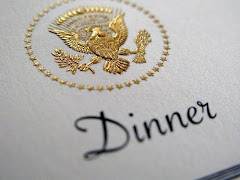May 28, 2010 5:00 AM
by Anna Mahjar-Barducci
The New Anti-Western Alliance: Iran, Turkey and Brazil
The West should be aware of a new alliance: Iran, Turkey and Brazil signed a joint declaration on May 17th to endorse a fuel swap whereby Iran will ship 1200 of its low enriched uranium to Turkey in exchange for the 20 percent uranium fuel needed for Tehran's research reactor. In late 2009, Iran had rejected an identical agreement proposed by the Vienna Group (the 5+1).
According to Iranian sources, it appears that Teheran is willing to transfer 1,200 kg of 3.5%-enriched uranium, which by now exceeds 2,000 kg, to Turkey for safekeeping, in order to receive in return 120 kg of 20%-enriched uranium Iran needs for its Tehran research reactor. The low-grade uranium, under the supervision of the International Atomic Energy Agency (IAEA), will be sent to Russia to be enriched up to 20% and then to France to be turned into nuclear fuel which will then be transferred back to Iran within one year. Turkish Prime Minister Recep Tayyip Erdogan clarified that if Ankara saw that Tehran was not receiving the 20%-enriched uranium, it would return to Iran its entire stock of 1,200 kg of uranium.
Iranian President Mahmoud Ahmadinejad immediately called on the 5+1 to return to the negotiating table; at the same time, his spokesman, Ramin Mehmanparast, announced that the agreement did not prevent Iran from continuing its ongoing uranium enrichment activities.
Iran is already under three sets of UN sanctions for refusing to halt its uranium enrichment, which the West suspects is part of a covert nuclear weapons program. Tehran denies the claim and maintains that its nuclear program is for peaceful civilian use.
Turkish Foreign Minister Ahmet Davutoglu said there was "no need" for further UN sanctions against Iran in light of the deal:. "This agreement should be regarded positively and there is no need for sanctions now that we (Turkey and Brazil) have made guarantees and the low enriched uranium will remain in Turkey."
The agreement was received in the West with scepticism. The office of the EU foreign affairs chief, Catherine Ashton, in Brussels, said the deal "does not answer all of the concerns," and Germany underlined that no agreement could replace the draft inked between Iran and the IAEA last October. Israeli officials also declared that they would be studying the details of the agreement, but they anticipated that, in their view, this agreement is just for the show.
The agreement will not lessen diplomatic problems over Iran's nuclear program: Although it is the photocopy of what the West wanted to insert in the framework of the Vienna talks, it was agreed upon outside the IAEA context, and therefore fails to build up an atmosphere of trust so much needed to improve the relations between Iran and the West.
Instead, it serves the purposes of the Iranian regime, which can now present the agreement as the practical implementation of President Mahmoud Ahmadinejad's declared intent to create a new world order in which the Tehran regime will not only have a leading role in running the world, but will also represent a political, cultural, and moral alternative to the decadence of the Western World.
With the involvement of Turkey, a regional power and a member of NATO, and Brazil, a major emerging world power and a member of the U.N. Security Council, Iran has moved its initiative beyond the Iranian nuclear sphere: This appears to be the first step in Iran's building of a political trans-regional global front that it presents as an alternative to the West's hegemony.
For Turkey, the deal represents a major achievement in its effort to gain credentials as a regional mediator and diplomatic heavyweight. It was also meant to show that the new Islamic course set by the Erdogan government makes the country more authoritative, independent and relevant on the international arena. But the agreement could also end up driving a wedge in Ankara's relations with Washington and some of its European allies.
As far as Brazil is concerned, economics might be the correct means of showing its support to Iran. Trade between the two countries quadrupled since 2002, to around $1.8 billion in 2007, and continues to grow. The possibility of cooperation in science, industry, technology and culture was strengthened by a foreign ministers' exchange in November 2008. It may not be a coincidence that Iran was one of the most prominent supporters of Brazil's inclusion in OPEC. Brazil's state-controlled oil company, Petrobras, began exploration in the Iranian waters of the Persian Gulf in 2003 and the Caspian Sea in 2004. ,Brazil, looking for markets, evidently sees a rising Iran as inevitable. Still, President Lula might consider the consequences of finding himself in the company of such arch-enemies of the US and of the capitalistic system in general as Hugo Chávez of Venezuela and Bolivia's Evo Morales.
At a time when the Ayatollahs' regime is showing to the world its worst face by crushing internal opposition, eliminating civil liberties and threatening to become a nuclear power, Turkey's and Brazil's interventions seem to be ill-timed and short-sighted. They give Iran legitimacy to operate outside the boundaries set by the IAEA. Their mediation seems to constitute a political alliance that goes beyond the nuclear issue, and, instead of bringing Tehran closer to a settlement of its nuclear dispute, appears to provide fodder for even more Iranian stalling.
http://www.hudsonny.org/2010/05/the-new-anti-western-alliance-iran-turkey-and-brazil.php
Monday, May 31, 2010
Subscribe to:
Post Comments (Atom)

















No comments:
Post a Comment